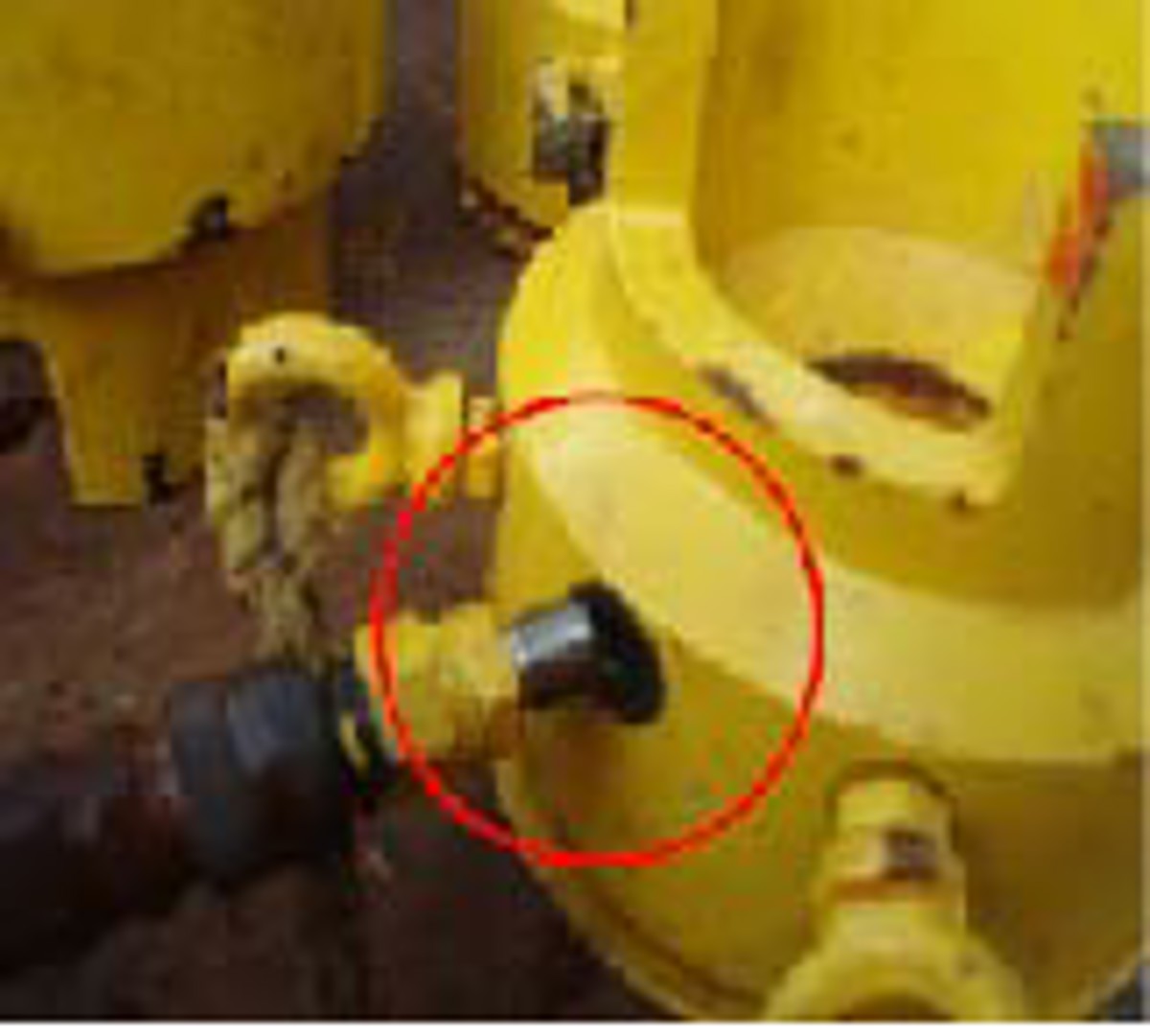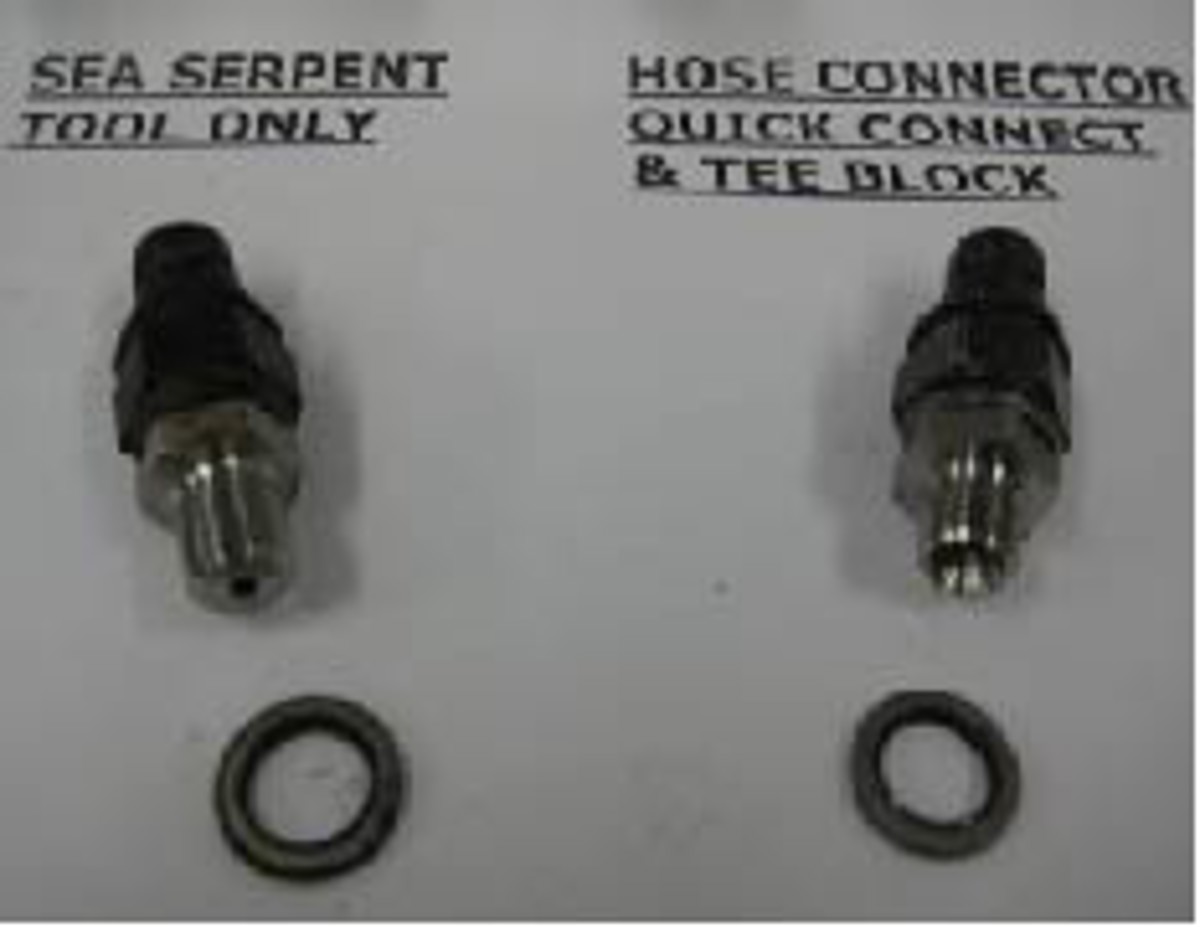Failed nipple on bolt tensioning jack
- Safety Flash
- Published on 6 May 2009
- Generated on 4 March 2026
- IMCA SF 06/09
- 1 minute read
Jump to:
A Member has reported an incident in which a nipple failed on a bolt tensioning jack.
What happened?
A diver was carrying out bolt tensioning on a 24″ pipeline being connected to a pipeline end manifold (PLEM) flange when the nipple flew out of the jack whilst the system was pressurised and hit the diver. There were no injuries.

nipple shown loose

correct adapter
What were the causes?
On investigation it was noted that an incorrect bolt tensioning jack assembly had taken place when a nipple intended for the interconnecting whips had been installed instead of the recommended correct one. The difference in thread size is quite minimal but can be easily identified visually by the different size orifice. Whenever the incorrect nipple comes loose through constant utilisation, this difference is sufficient for it to be forced out when hydraulic pressure is applied to the system.
Lessons learnt
It is recommended that all nipples on used bolt tensioning jacks / interconnecting whips should be removed and visually checked to ensure that the correct fitting is in place, and replaced as necessary, followed by a maximum system pressure test.
IMCA Safety Flashes summarise key safety matters and incidents, allowing lessons to be more easily learnt for the benefit of the entire offshore industry.
The effectiveness of the IMCA Safety Flash system depends on the industry sharing information and so avoiding repeat incidents. Incidents are classified according to IOGP's Life Saving Rules.
All information is anonymised or sanitised, as appropriate, and warnings for graphic content included where possible.
IMCA makes every effort to ensure both the accuracy and reliability of the information shared, but is not be liable for any guidance and/or recommendation and/or statement herein contained.
The information contained in this document does not fulfil or replace any individual's or Member's legal, regulatory or other duties or obligations in respect of their operations. Individuals and Members remain solely responsible for the safe, lawful and proper conduct of their operations.
Share your safety incidents with IMCA online. Sign-up to receive Safety Flashes straight to your email.